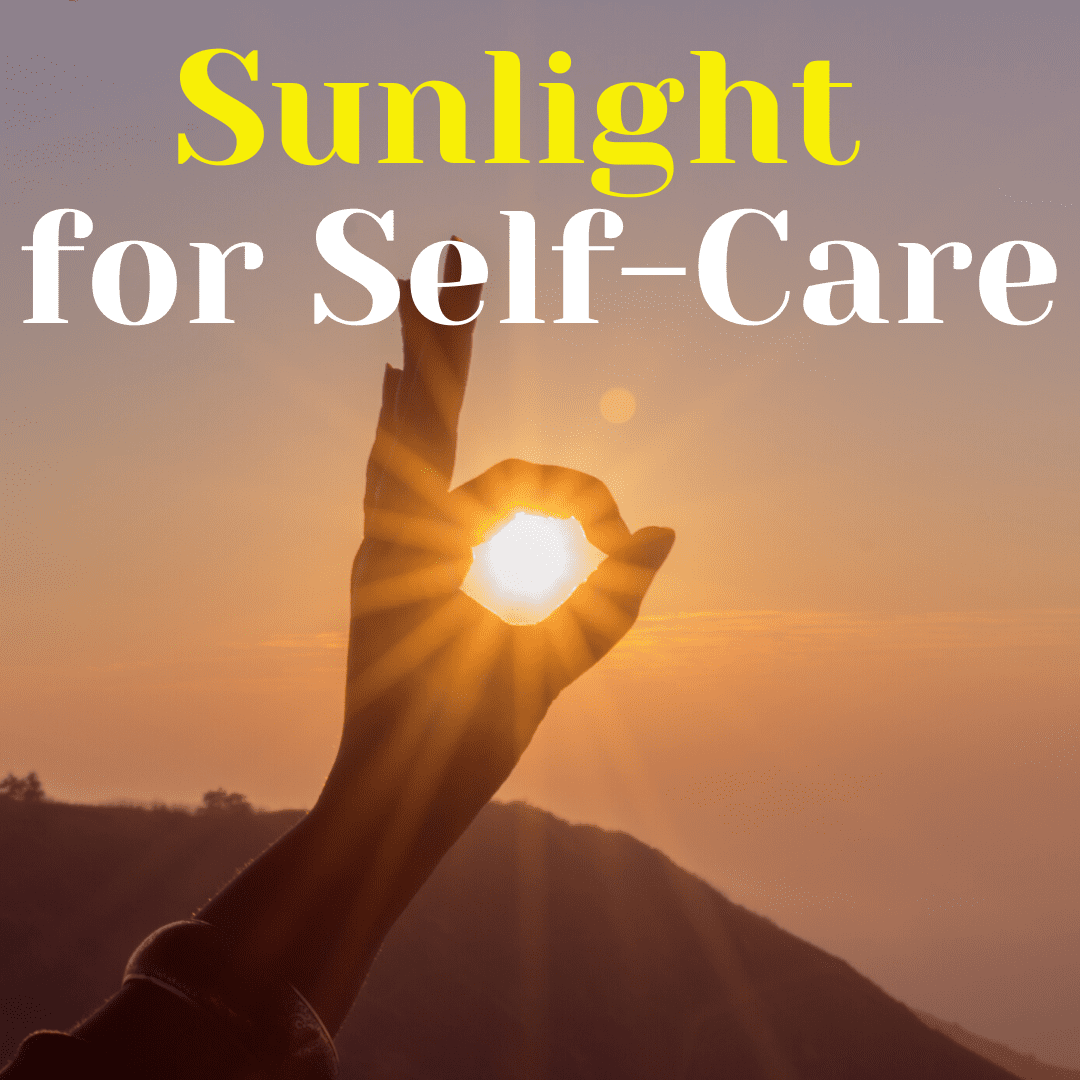It’s an understatement to say that the human body appreciates receiving a healthy dose of sunlight within the first few hours of the day. Sunlight for self-care is possible now that we’ve entered warmer months. Consider taking advantage of the abundance of sunlight by harnessing it as a form of personal care.

By simply offering your body a few minutes of sunlight in the morning, you are inviting a sequence of biological occurrences to unfold. This will ultimately result in more stabilized energy levels, steadier moods, deeper sleep, and stronger bones.
Lack of sunlight has been linked to a number of disorders including infertility, insomnia, anxiety, depression, among countless other conditions that yield poor health. Though it’s wise to be prudent about the amount of sun one is exposing themselves to, healthy doses of sunlight supports the production of Vitamin D, Serotonin, and Melatonin – thus becoming the foundation of our waking and sleeping lives.
How Sunlight Interacts with the Body
When sunlight penetrates into our vision, the information of the light travels through the optic nerve all the way into the brain, and throughout its numerous glands. It is here where the pituitary gland takes the information from the sunlight and begins to produce Serotonin, a neurotransmitter associated with states of wakefulness and joy.
When sunlight touches our skin, the body begins to generate a supply of Vitamin D – this is essential for calcium absorption, bone growth, and maintaining Serotonin supplies. Without proper Vitamin D levels, the body becomes ill-equipped to collect the sunlight’s information to convert into Serotonin. This can mean bad news for emotional health. As the lack of sunlight is directly linked to feelings of hopelessness, depression, and a general lackluster for life. There is also a wealth of clinical research linking the proportion of sunlight to cases of suicide.
From a biological standpoint, healthy Serotonin production is important because it’s the precursor to the production of Melatonin – the hormone responsible for nourishing sleep. While natural sunlight stimulates Serotonin, the darkness of night stimulates Melatonin. As the sun begins to rise again, the brain gives orders to halt Melatonin production, and so continues this very synergistic process that is completely commanded by the body’s perception of light.
It’s for this reason that keeping artificial light to a minimum after sunset is important to ensure the body has a chance to generate sufficient sleep hormone. It’s also relevant to note that sunlight filtered through windows does not count as a natural sunlight. This is because the technology in windows blocks UV light from coming in, meaning it’s no longer full spectrum light and behaves differently in the body than direct sunlight would. True unadulterated sunlight is what stimulates these supportive biological responses.
Trust Sunlight for Self-Care
Though there’s a lot of reluctance to trust the sun these days, the evidence in its favor is staggering. From treating physical ailments to addressing emotional well-being, studies are pointing towards sunlight as a supplementary solution. Ample research has indicated that anywhere between 5-15 minutes of sunlight a few days a week is all that’s needed for noticeable improvement.
Ultimately, our goal here is to create an environment that supports wakefulness during the day, and effective downtime at night. With the influx of sleeping problems, mid-day exhaustion, and disruptions to physical health, we have little to lose by turning to the sunlight for self-care and support. Especially when considering that sunlight is a completely free resource, available to all.
We are all being called to do extraordinary things for the collective caring of our families, communities and the world in response to the unique coronavirus pandemic. Whether home bound or providing critical services, everyone is stretched to adapt like never before. All of us are in this together. Now more than ever, caring is what we need most. Caring for our self. Caring for others around us. Life is going to require new routines, resilience and compassion. We invite you to join us in creating a caring movement to respond to local needs.
Would you like to read more about UCA caring resources? We have other blogs on Unified Caring Association, caring in our communities, and caring the UCA way!
Article by Melissa Aparicio, contributing author

